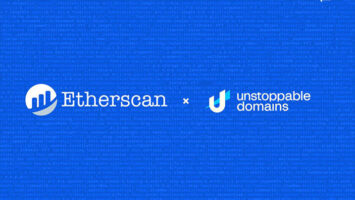SNEAK PEEK
- Hong Kong launched the first crypto-related Bitcoin and Ethereum ETFs.
- ETFs began trading at HK$7.77.
- The policy aims to promote the growth of cryptocurrencies and NFTs in Hong Kong.
Hong Kong announces the first crypto-related Bitcoin and Ethereum ETFs, reflecting the city’s apparent intention to become a massive worldwide digital asset center, shared Animoca Brands chairman, Yat Siu via a tweet on December 20, 2022.
1/ #HongKong launches 1st #crypto #bitcoin #Ethereum #ETFs signaling its clear ambition to make Hong Kong a major global digital asset hub. A thread why this is so important how #blockchain #web3 #NFT is evolving in Asia which will have global impact https://t.co/5mINeurebw 🧵👇
— Yat Siu (@ysiu) December 20, 2022
The Financial Services and Treasury Bureau published a policy document on October 31, 2022, to encourage the long-term growth of digital currencies and crypto networks (NFTs) in Hong Kong.
On Friday, Hong Kong launched its first two exchange-traded funds for virtual currencies, fulfilling a vow pledged in October to transform the city into a global digital asset center rivaling Singapore.
After amassing about $79 million in initial investments, the ETFs earned minor gains on their launch. CSOP Asset Management’s bitcoin and ether futures ETFs garnered $58.9 million and $19.7 million, respectively, in advance of their listings, according to an announcement by the Hong Kong-based firm.
Chicago Mercantile Exchange bitcoin agreements are mirrored in the ETFs for traders in the Chicago area. On Friday, all ETFs launched at HK$7.77 ($1) per unit and ended 0.5% higher.
The launch is a significant step toward Hong Kong’s goal of becoming a crypto center, despite falling virtual asset valuations and signs of turbulence in the sector.
Hong Kong’s attempt to create crypto ETFs and make it simpler for regular traders to exchange digital content comes after years of harsher rules than Singapore, despite the latter’s recent announcement that it aims to crack down on unethical behavior in the sector.
When other significant areas are “developing a more comprehensive regulatory structure,” they perceive circumstances for additional relaxation since we already have one. They are thrilled about the possibilities in the digital asset market, according to Leung, who spoke at a conference last month.
An upgrade to the city’s anti-money laundering ordinance, enacted last week and expected to take effect next year, would need virtual-asset internet services to follow the rules before being granted an operating license.









